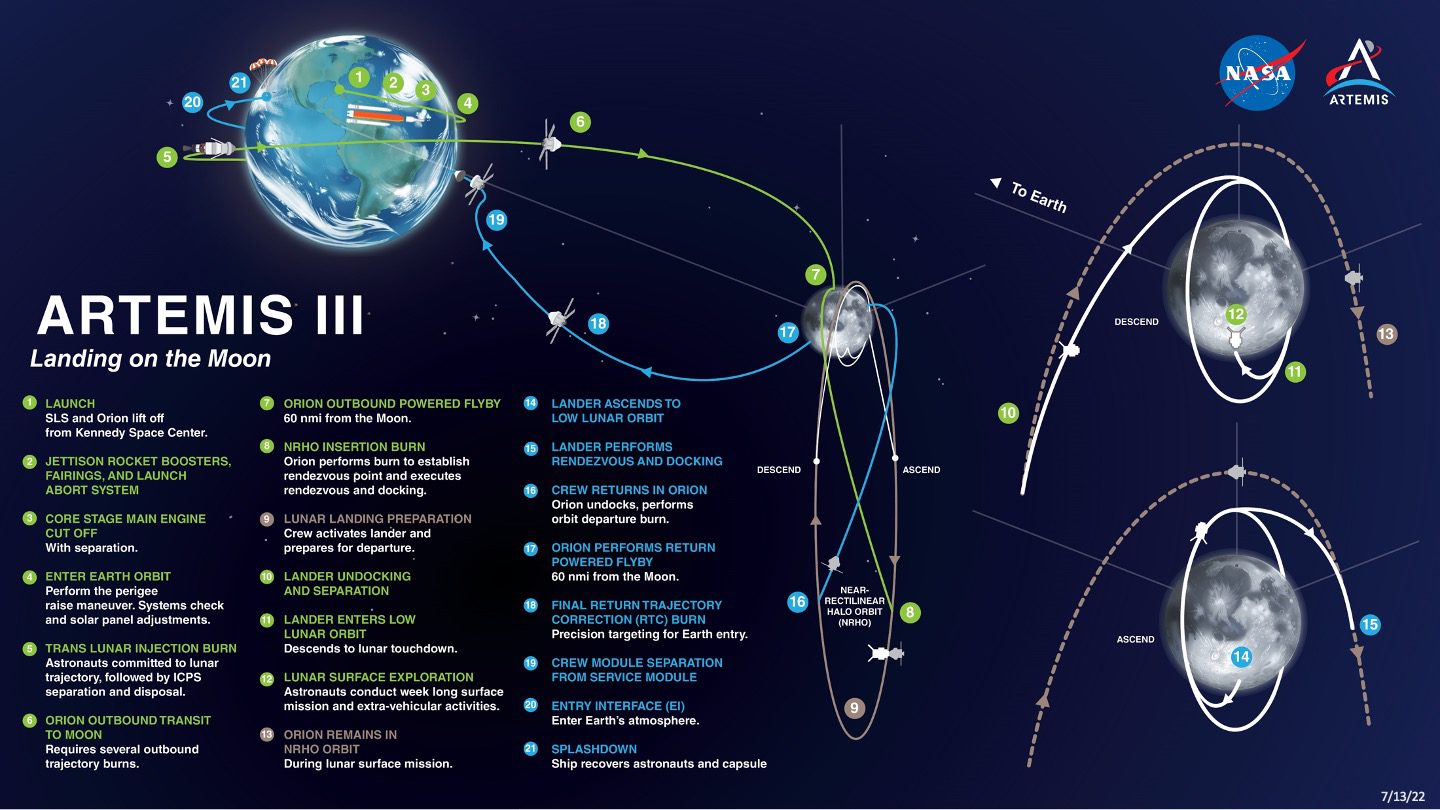NASA has announced its plan for the Artemis III mission, including that it is scheduled for 2025. If everything goes well it will see the return of humans to the surface of the Moon for the first time in over 50 years. The location of the planned Moon landing is somewhere that humans have never explored before: the lunar South Pole.
Four astronauts will be sent on this mission. They will launch on top of the massive Space Launch System (SLS) in the Orion capsule. The first voyage for both of these was only just a few weeks ago with Artemis I and current information shows that both performed extremely well. Orion will take the astronauts to a particular lunar orbit: the Near-Rectilinear Halo Orbit (NRHO). This special celestial path around the Moon allows it to be constantly in contact with Earth and will one day soon be the location of the Lunar Gateway, a new space station that will provide a base for Moon (and possibly Mars) trips.
A crucial component of the success of the mission is SpaceX’s Starship. NASA awarded the contract for a lunar lander to Elon Musk’s company a few years ago, which led to a legal battle between SpaceX and Jeff Bezos’ Blue Origin. SpaceX will have to meet the high standard required by NASA and it is expected to conduct an uncrewed test on the surface of the Moon before it can be used for Artemis III.
So far, Starship has not conducted any orbital tests but this is likely to happen in the next few months, once the Federal Aviation Administration’s concerns related to missing environmental requirements for SpaceX’s Starbase have been completed.

This is all the steps for Artemis III to bring humans to the Moon and back. Image Credit: NASA
Starship will travel from Earth in a different way. It will launch and first rendezvous with an orbital fuel depot that will give it enough fuel to get to the Moon and then bring the astronauts to and from the Moon. Orion and Starship will meet in the NRHO. Two astronauts will then transfer to Starship and land on the Moon.
The lunar South Pole will look very different to the equatorial regions visited by the Apollo astronauts. The Sun will be low on the horizon, so the exploration will be aided by headlamps and new, more mobile surface suits that are being designed by Axiom Space. Another difference between Artemis’s lunar exploration and Apollo’s is that the future mission will spend multiple days on the surface of the Moon. Those days will be used to collect samples, survey geology, and more.
After the brief sojourn on the Moon, Starship will fly back to Orion. The four astronauts will be reunited and they will begin the journey back home before landing in the Pacific. But before we get to Artemis III, Artemis II will have to fly. This will be the first crewed mission of the Artemis program and it is expected to launch in May 2024.
Source Link: Humans Will Walk On The Moon In 2025, NASA Announces